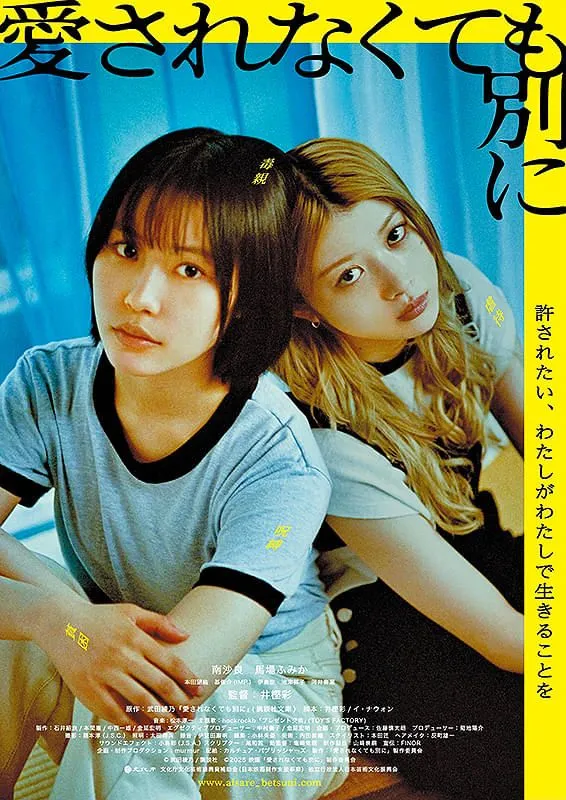愛されなくても別に (Aisarenakutemo Betsuni) Film Adaptation Thoughts

When the Takeda Ayano book was announced for a live-action film adaptation, I was quite intrigued. The release date also coincided with my three-month stay in Japan, so I decided to spend my Saturday afternoon watching the movie.
This is the first Takeda Ayano live-action film adaptation. While she is no stranger to adaptations, I feel like there's some prestige in having a live-action movie screening in theaters everywhere. And it's an interesting choice for an adaptation too: as I wrote earlier, the book is rather critical about Japanese family structures and presents a compelling aromantic relationship between a woman repulsed by sexual intimacy and a sexual assault survivor. Perhaps, there's a demand for films that interrogate the fundamental assumptions of Japanese society. While watching this film I can't help but be reminded of Koreeda Hirokazu's Shoplifters, which it topped the Japanese charts for that year.
The movie follows the plot very closely -- not necessarily an ideal trait for bloggers trying to say something meaningful about movie adaptations. But in this case, the film's strengths hinges entirely on the strength of the original writing, character dynamics, and set design. Every scene was filmed the way I imagined when reading the book, depicting the world in which these characters live. The shots of Enaga's apartment and aquarium made it seem like the director and cinematographer had peeked into my brain. The performances are also meaningfully subdued to match the tone of the writing. I found myself sinking back into Miyata's depressing worldview as she looked around her apartment in silence, thinking about how much time and money she had devoted to caring for her mother.
I thought this was impressive because much of the book deals with Miyata's intoxicating narration, which is absent in the movie. Readers (myself included) will dearly miss this omission, but as a movie adaptation I think it's quite effective. The audience needs to connect the dots and understand the subtext behind each action and dialog. As a result, the movie doesn't feel jarring and remains consistently somber. The slow, lingering pace also makes the already quiet movie feel like a meditation.
The film also features excellent performances of some of the work's iconic lines. The title drop is as subtle and jarring as I remember; it's delivered as an offhand remark. I'm glad the staff understood there was no need to escalate the scene's stakes. Anyone paying attention will notice how important the title is.
The movie has flaws, some of which stem from the book. While the relationship between the two protagonists feels real, it doesn't feel developed because there isn't much screen time of them just hanging out together. Instead, they're always doing something. The last third of the movie really suffers because there's no breathing room for the two. They keep getting one problem after another, so their life becomes too hectic for the audience to understand their dynamic during calm moments.
I also found the cinematography and editing awkward at times. There are many dolly shots that don't add any value to the scene and are very distracting. This conflicts with how plain and functional many of these shots are. In fact, I wish it were more minimalist.
But in the end, the movie is a solid adaptation that not only understands the source text's quirks but embraces them. As I left the theater, I overheard a het couple raving about how wonderful the movie was and how much they couold relate to the characters. I think the movie and the book speak to the feelings that everyone young and thinking about familial love is feeling right now.
I would recommend this movie to fans of the book and and to those are interested in the work but can't read Japanese yet (I assume this will be subtitled in English soon). It's a good adaptation that introduces readers to the non-Euphonium world Takeda is thriving in.
I would love for more people to read or watch this work. Its message, I think, is so important. Watching this movie reaffirmed my belief that it might be one of the best contemporary works of fiction I've read. Takeda Ayano is a very talented write, and I hope more of her works are adapted for the big screen soon.